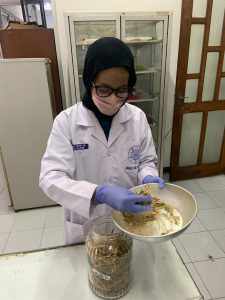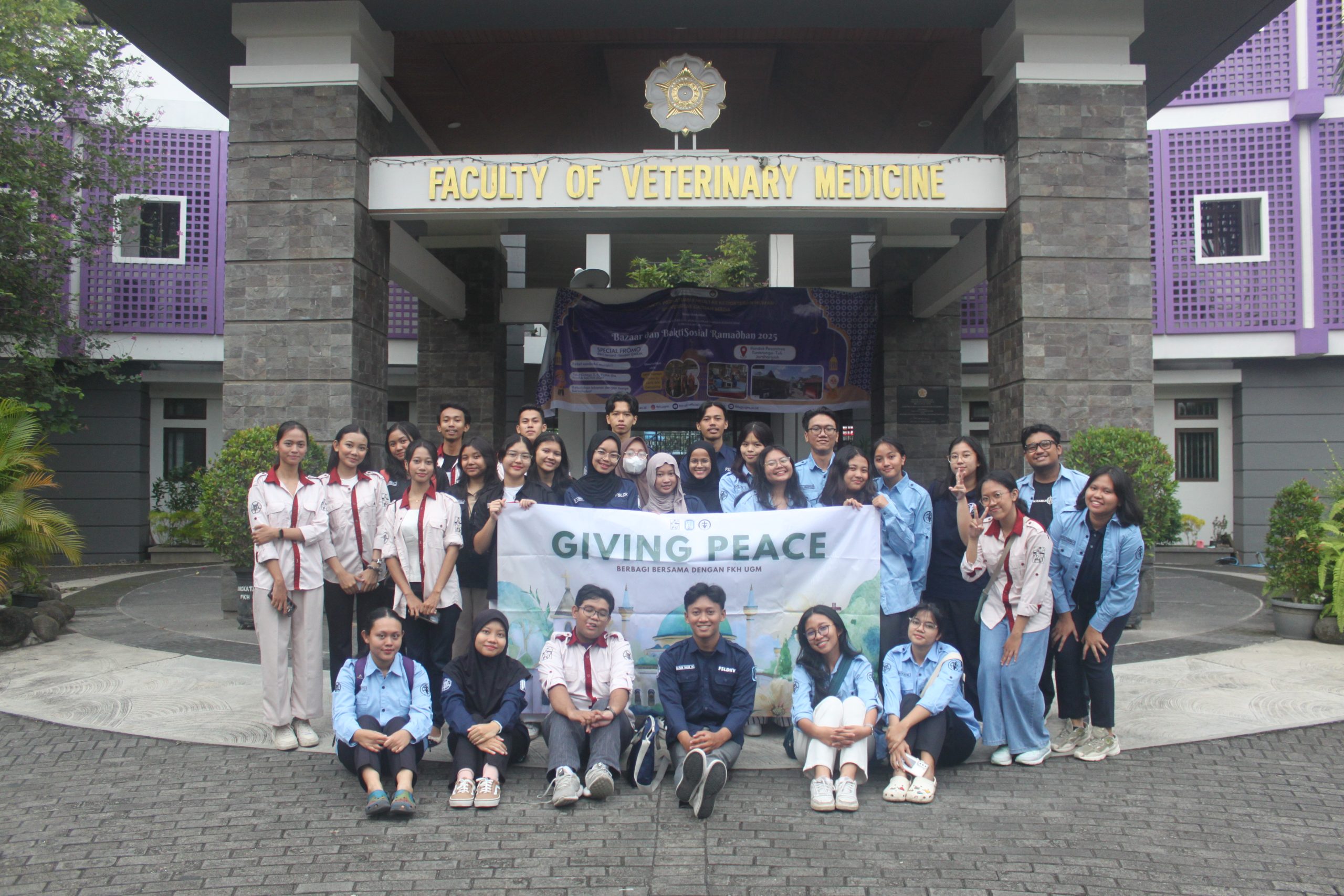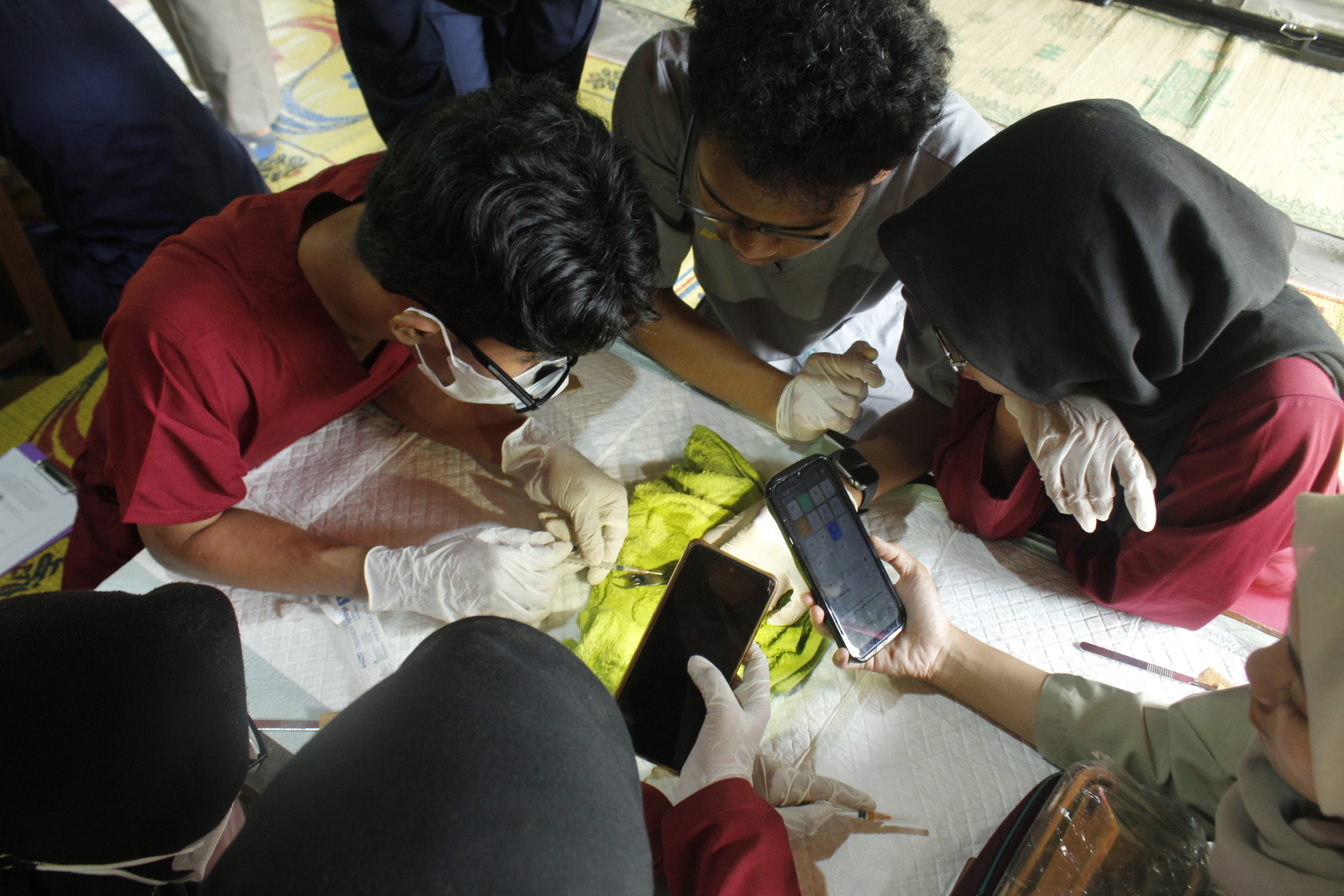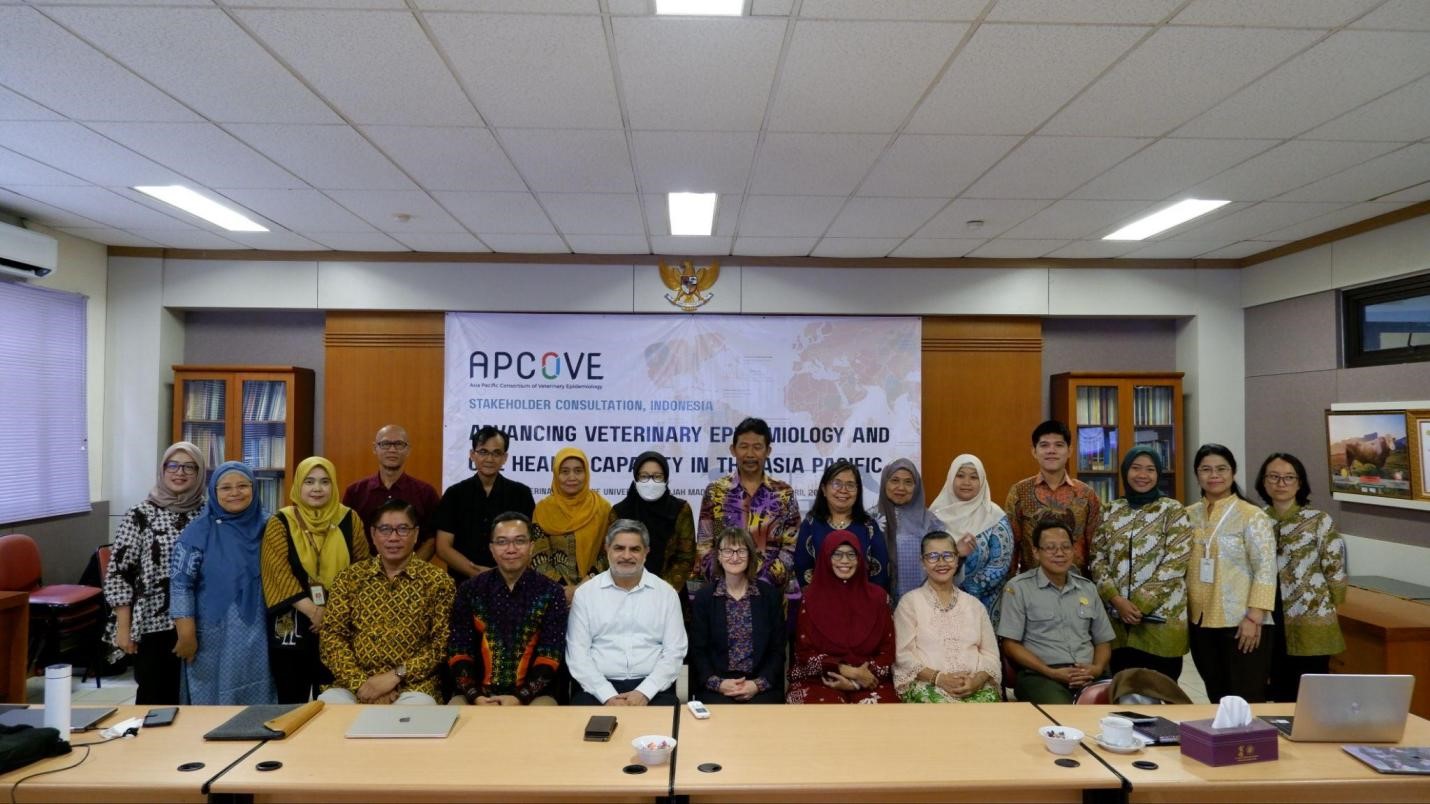Five UGM students succeeded in making a hepatoprotective drug as a therapy for effusive FIP using blood chemistry, namely increasing albumin levels to prevent fluid buildup in the abdominal cavity (ascites) and reducing the patient’s SGOT and SGPT levels so that other organ functions can function properly. Apart from that, hepatoprotective drugs derived from a combination of bitter and licorice roots can more quickly repair cell damage caused by the virus. The research was led by Syifa Annisa (Veterinary Medicine, 2023) and involved her colleagues, namely Yustisia Nur Rafidha Hestomo Putri (Pharmacy, 2023), Kalya Dija Azzahra (Veterinary Medicine, 2022), Dewi Nur Rohmah (Pharmacy, 2022), and Hati Setya Utami (Veterinary Technology, 2022) with accompanying lecturer from the Faculty of Veterinary Medicine, namely Dr. drh. Vista Budiariati, M.Sc. incorporated under the name Sambikarnis.
The research project carried out by Syifa and her team members is part of the Student Creativity Program in Exact Research (PKM-RE). Supported by funding from the Ministry of Education, Culture, Research and Technology (Kemendikbud Ristek), the Sambikarnis team succeeded in discovering the potential for hepatoprotective drug bitter extract with a combination of liquorice capsule shells as an alternative therapy for Feline Infectious Peritonitis. This research is in line with SDGs point 3, good health and well-being.
Feline Infectious Peritonitis (FIP) is a virus that attacks cats with 80% of sufferers experiencing the effusive type which is caused by vasculitis of the liver tissue which gets worse to the point of forming scar tissue in the liver (cirrhosis) resulting in a buildup of fluid in the abdominal cavity and with a high mortality rate. the high one.

Hati said that “FIP occurs when there is a mutation in the feline entry coronavirus which then spreads through the monocyte phagocytosis system and variations are formed in the immune response, namely effusive (wet) and non-effusive (dry) FIP.”
The most common treatments given to FIP sufferers currently are the antivirals Remdesivir and GS-441524. However, these two types of treatment are imported with long-term use, namely 84 days and are supported by the use of quite a lot of support drugs
“Sambiloto extract in a licorice capsule shell is a herbal formulation with hepatoprotective properties that is produced through an extraction process using the 96% ethanol maceration method, a powder preparation is formed from the bittersweet extract, while the licorice extract is formulated as a coating capsule from the bittersweet extract powder. Sambiloto extract contains the active compound andrographolide which can reduce hepatocyte death, reduce SGPT, and SGOT levels, and increase albumin so that the liver becomes normal again. Licorice root extract contains glycyrrhizin which is often used as a sweetener agent and has been proven useful as an antiviral. “The research results show that administering bitter extract in licorice capsule shells at a dose of 200 mg/kgBB has proven effective in increasing albumin levels and reducing SGOT and SGPT levels as well as accelerating repair of liver tissue exposed to hepatotoxic agents and viruses,” explained Syifa as team leader.

“There is a need to explore new treatment sources for FIP and adjust the dose to proband animals (main subjects). “Hepatoprotective formulations of bitter extract in licorice capsule shells could be a therapeutic candidate, but a strong foundation is needed for further research,” said Afi.
This research can reveal the hepatoprotective activity of the bitter extract in licorice capsule shells as an alternative therapy for FIP. Based on hard work and previous research collaborations, this research continues to be explored to contribute to realizing SDG 3 Healthy and prosperous lives. By developing alternative, nature-based therapies, this research also contributes to the preservation and sustainable use of biodiversity. This research does not only focus on product development but also the transfer of knowledge and technology so that the results can be widely applied and beneficial to global society. It is hoped that the success of this research will be a significant step in the development of herbal medicines that are scientifically tested and will have a positive impact on public health.








